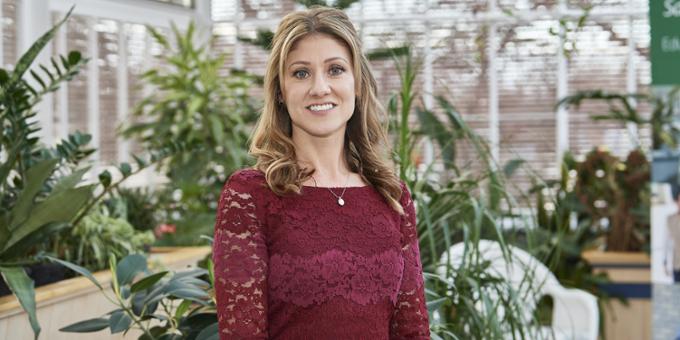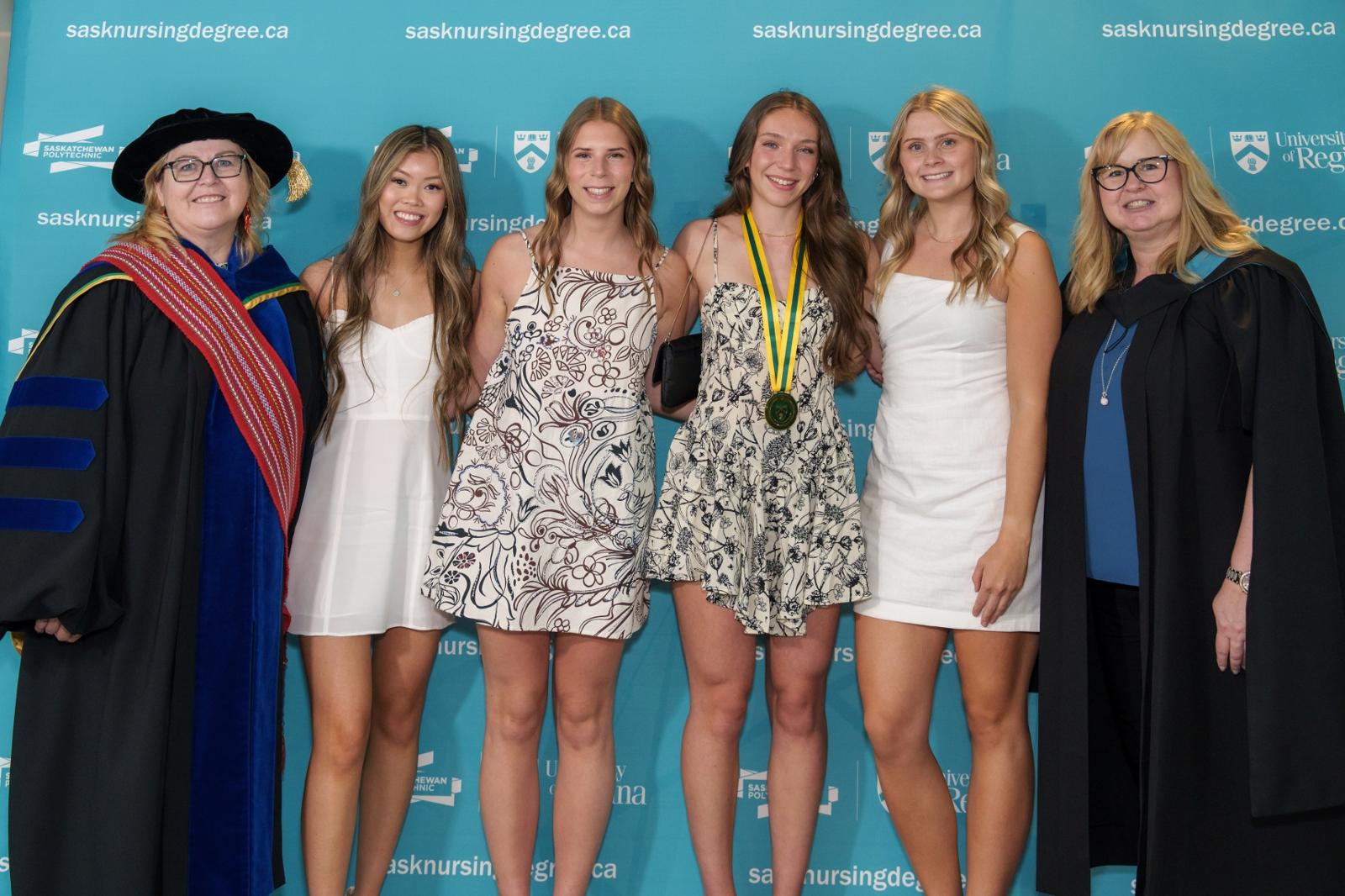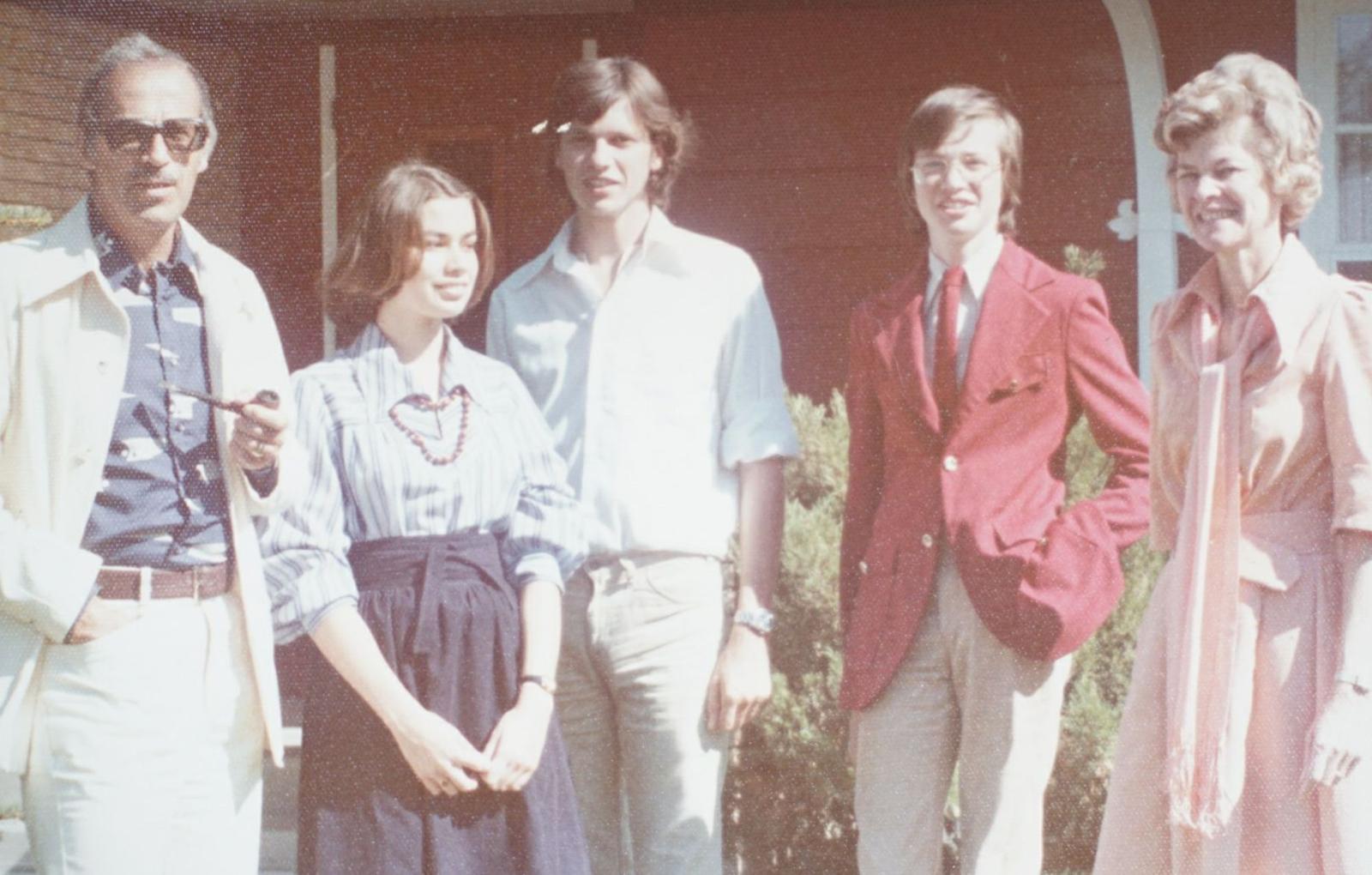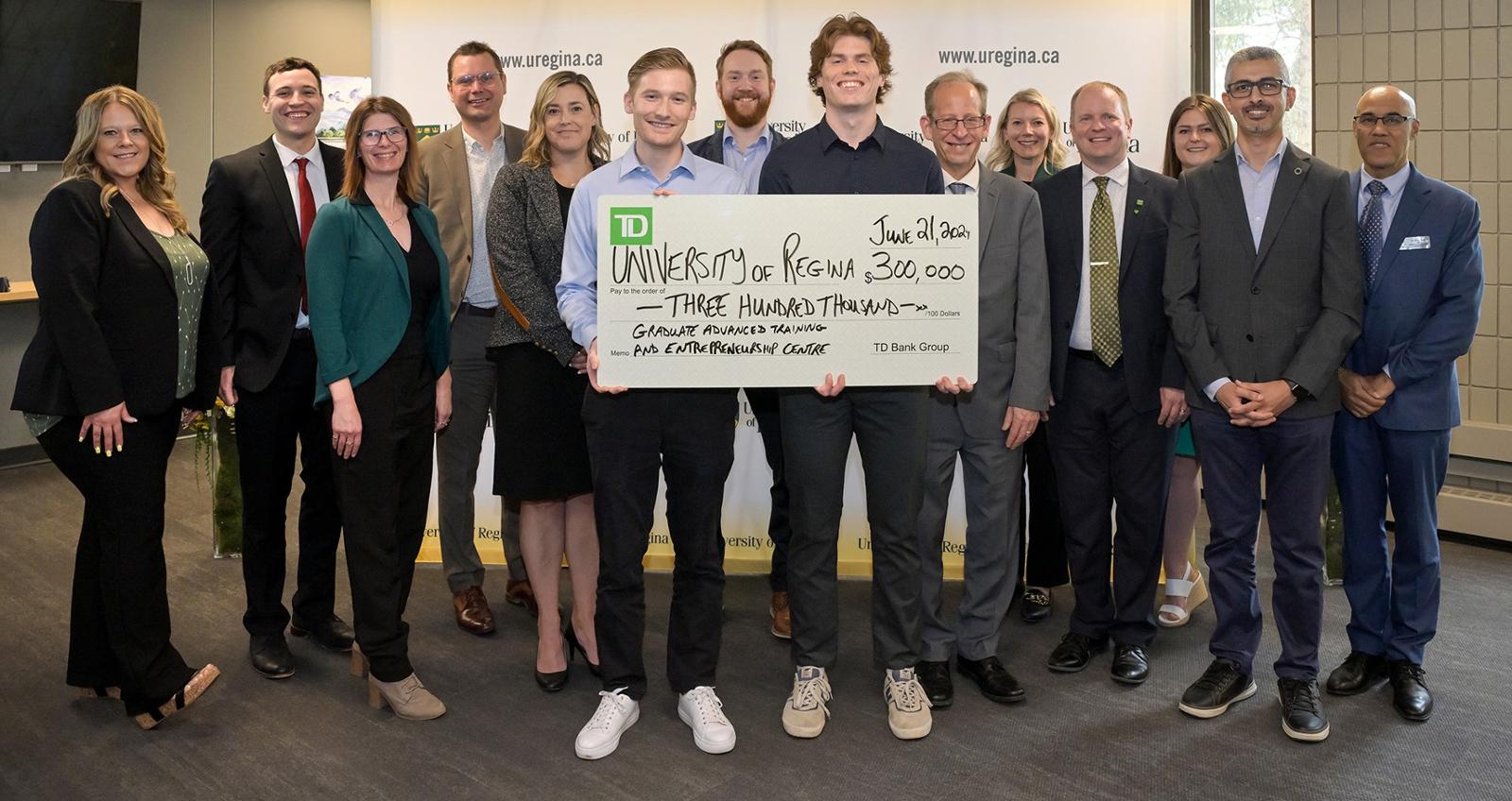Dr. Amber Fletcher, a professor in the Department of Sociology and Social Studies, was recently awarded a Lieutenant Governor’s Post-Secondary Teaching Award in the Innovative Teaching category. This prestigious award recognizes Dr. Fletcher’s innovative approach to student engagement.
Dr. Fletcher, along with the other award recipients, was also invited to the Legislative Assembly where she was recognized by the Honourable Gordon Wyant, Minister of Advanced Education, for her achievements.
“These individuals have been recognized by their peers as exceptional educators, leaders, and mentors at our post-secondary institutions,” says Minister Wyant. “We congratulate these educators for receiving the inaugural award this year and thank them for bringing new perspectives to the classroom.”
Teaching is almost always on my mind. I want to continue improving, learning, and working to make my class a wonderful experience for my students and our community partners. — Dr. Amber Fletcher, a professor in the Department of Sociology and Social Studies
Dr. Fletcher is also being recognized within the University community.
“Dr. Fletcher is an innovative teacher and an exceptional role model for our students – many of whom she is inspiring and mentoring in her classes and through her graduate supervision,” says Dr. Jeff Keshen, President and Vice-Chancellor. “Through her teaching, she is making significant contributions to Saskatchewan’s educational landscape; at the same time, her world-class research and broad community engagement make her one of the leading academics in the province, if not the country.”
After completing both her Bachelor of Arts in Women’s Studies and PhD in Philosophy, Interdisciplinary Studies (gender studies, sociology, and public policy) at the University of Regina and a Master of Arts in Women’s Studies at York University, Dr. Fletcher began working at the University of Regina as an Assistant Professor in 2014.
During her time as a student, she always pictured her future self being a professor.
“I remember sitting in my undergraduate classrooms and thinking of ways I’d want to teach the material. In my head, I’d be designing hypothetical learning activities for the class I was taking,” says Dr. Fletcher. “Since becoming a professor, I’ve enjoyed actually developing my own activities to make learning fun and engaging for my students.”
Innovative teaching approaches
As the recipient of the Innovative Teaching Award, Dr. Fletcher incorporates innovative teaching approaches into her classroom and her everyday work. She uses open-access educational resources, such as textbooks and videos, that are freely available to students. This helps to bring costs down for the students, and it makes her classes more accessible.
She also implements community-engaged learning (CEL) in her classes, which helps to build connections between the University of Regina campus and community-based organizations. When practicing CEL, Fletcher aims to build more bridges between the university and the broader community by developing collaborative learning and research partnerships.
“Community-engaged learning projects should be reciprocally beneficial,” says Fletcher. “They should meaningfully support community initiatives while simultaneously providing students with memorable learning experiences to apply academic knowledge in 'real world' contexts.”
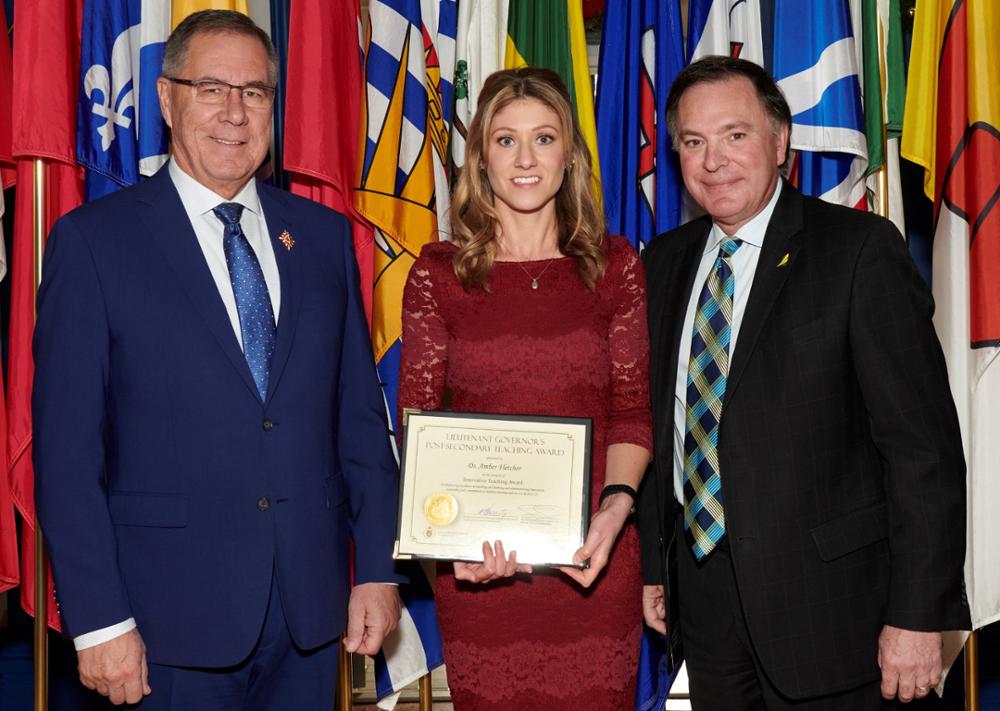
Fletcher says that receiving the Lieutenant Governor’s Post-Secondary Teaching Award is incredibly meaningful, and she hopes that it will encourage others to consider embracing practices like CEL and using open access resources in their own classrooms.
“Teaching is almost always on my mind. I want to continue improving, learning, and working to make my class a wonderful experience for my students and our community partners,” she says. “This award tells me that I’m on the right track.”
Caring and compassion are key components of Dr. Fletcher’s teaching philosophy. She believes that if we expect students to care about their community, we have to first model that care throughout our campus.
Nicholas Antonini, a Master of Arts (Sociology) student, says that Dr. Fletcher’s commitment to accessibility and her inviting classroom environment is what makes her stand out as a teacher and mentor.
“Dr. Fletcher has been instrumental (and central) in my academic successes through encouragement and mentorship that supported me in balancing academic life and health. Her efforts have led to opportunities for me, which I believe I would not otherwise have had, had she not been around to really listen to my needs as a student,” says Antonini. “She is without a doubt deserving of this award, inside and out, and across all criteria.”
Does Dr. Fletcher’s work sound interesting? Find out more about the Department of Sociology and Social Studies!
As the first provincial award of its kind in Saskatchewan, the Lieutenant Governor’s Post-Secondary Teaching Award recognizes remarkable educators on their dedication to student engagement and learning. The award also supports Saskatchewan post-secondary educators in competing for national teaching awards and being recognized on a national scale.
“Teachers play a crucial role at every stage of learning, including the post-secondary level. I congratulate the recipients and I thank them for their outstanding commitment to education,” says Lieutenant Governor Russ Mirasty.
Banner photo credit: Ministry of Advanced Education
About the University of Regina
Set in the heart of the Canadian prairies we are a comprehensive, mid-sized university where the opportunities are as limitless as the horizon. Our campuses are on Treaty 4 and 6 - the territories of the nêhiyawak, Anihšināpēk, Dakota, Lakota, and Nakoda peoples, and the homeland of the Michif/Métis nation. It is our responsibility to strengthen relationships with Indigenous communities to build a more inclusive future for all. Our three federated colleges, 10 faculties, 25 academic departments, and 18 research centres foster innovative research with practical and theoretical applications. We are committed to cultivating the potential of our 16,000 students and supporting their health and well-being. We take learning beyond the classroom through work and volunteer experiences to develop career-ready graduates.
Let’s go far, together.
